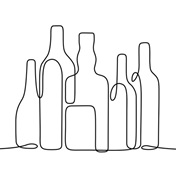The research, sponsored by the International Centre for Alcohol Policies (ICAP), also finds striking similarities about drinking among young people in different parts of the world including:
- Their introduction to alcohol was typically by parents during a family celebration;
- Alcohol consumption was primarily associated with enjoyment and socializing;
- Drinking mostly took place at gatherings (parties, sporting events) and in public venues (bars, clubs);
- A successful drinking experience was thought to involve socializing and avoiding problems;
- There was an awareness of drinking as a means of self-medication.
Culture of extreme drinking
Data from the focus groups are included in a new book, "Swimming with Crocodiles: The Culture of Extreme Drinking." The focus groups were conducted in Brazil, China, Italy, Nigeria, Russia, South Africa and the United Kingdom.
"Tragically, too many young people purposefully pursue drunkenness as a form of 'calculated hedonism' bounded by the structural and cultural factors that affect young people in different countries," says Fiona Measham, PhD, co-editor of the book and criminologist at Lancaster University.
"We need to work to change this culture of extreme drinking," says Marjana Martinic, PhD, co-editor and vice president for public health at ICAP. "We need to look at cultures in countries like Italy and Spain where moderate drinking is an ordinary, everyday part of family life."
Research on young people's drinking shows that rates of drunkenness and extreme drinking are significantly lower in the Mediterranean countries than in Northern European countries. For example, 49% of Swedish 17-year-olds report having been drunk compared with around 10% of Italian, French and Greek youth.
"Changing the culture of extreme drinking requires looking beyond traditional responses and getting all relevant stakeholders involved," concludes Martinic. "This means governments, the public health community, the beverage alcohol industry, the criminal justice system and civil society must have a role in reducing extreme drinking among young people."
Martinic says there is a wide range of interventions to help reduce extreme drinking among young people, particularly interventions at three key settings: school, work and community. – (EurekAlert, September 2008)
Read more:
Alcohol's effect on the brain
WHO tackles alcohol issue




 Publications
Publications
 Partners
Partners










